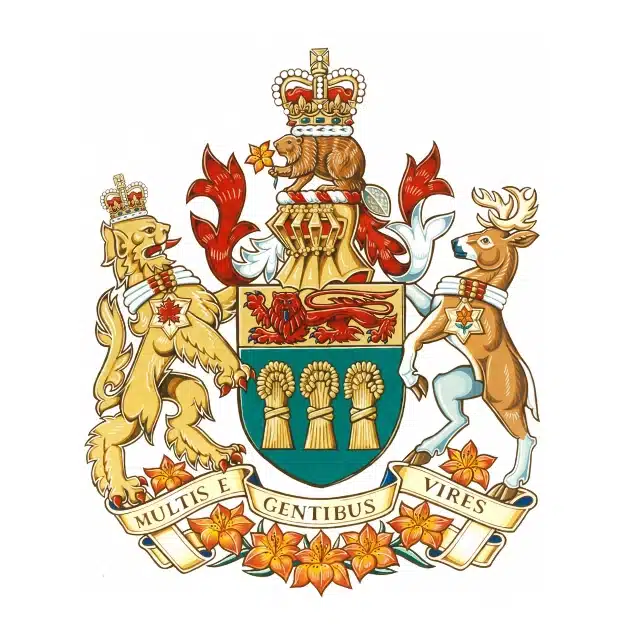WarrantS: Youth Drug Detoxification
Provincial Court | SaskatchewanCourts of Saskatchewan
Applying For Warrant: Youth Drug Detox
Provincial Court
Parents, caregivers and guardians who are concerned about a young person using drugs may be able to encourage the youth to seek treatment for their drug addiction or drug abuse.
However, in some situations, extreme drug intoxication may prevent the youth from making a sound decision regarding treatment and care. Parents and caregivers may have reason to be concerned that the youth will cause harm to themselves or others. The Youth Drug Detoxification and Stabilization Act has specific provisions for stabilizing a young person during a crisis period so that they can take advantage of treatment options for their drug use.
This page provides an overview of involuntary admission under The Youth Drug Detoxification and Stabilization Act and the procedure for bringing an application to a Provincial Court judge for a Warrant of Apprehension to have the youth examined by a doctor. Youth are persons who are at least 12 years of age but who are under 18.

Ways To Get A Youth To A Doctor For Examination
It is best when a person seeks treatment for their drug use/drug addiction voluntarily. Saskatchewan Health or community addiction service organizations may have documents and resources that are helpful in encouraging voluntary treatment.
However, if a youth cannot be persuaded to do so, a doctor might admit them to a detoxification facility or provide detoxification and/or stabilization services.
There are three ways to get a youth to a doctor for examination:
DIRECT TO DOCTOR
You may be able to persuade the youth to see a family doctor, have a crisis support team visit the youth at home or take the youth to a hospital emergency department.
POLICE ASSISTANCE
If there is an urgent situation because the youth is likely to cause harm to themselves or others as a result of their drug addiction or drug use, call 911 and ask for police assistance.
Under section 8 of The Youth Drug Detoxification and Stabilization Act, police are authorized to apprehend a youth without a warrant and take them to a doctor for assessment if the police officer has reasonable grounds to believe that;
a) the youth is suffering from a severe drug addiction or drug abuse;
b) is in immediate risk of serious harm or immediate danger to themselves or another person;
c) is in need of detainment to ensure their safety or safety of others or to facilitate the youth’s detoxification and stabilization.
PROVINCIAL COURT JUDGE ASSISTANCE
Certain persons can attend before a Provincial Court judge and give information requesting a warrant to apprehend the youth for the purposes of a medical examination.
Under section 7 of The Youth Drug Detoxification and Stabilization Act, a judge is authorized to issue a warrant if the judge is satisfied, based on an affirmed or sworn information that the youth;
a) is suffering from severe drug addiction or drug abuse;
b) is at risk of serious harm or danger to themselves or to another person;
c) needs to be detained for their safety or the safety of another person or to undergo detoxification and stabilization; and
d) needs to be examined by a doctor who will determine whether the youth should receive detoxification or stabilization services or be admitted to a detoxification facility
After completing an examination by a doctor, any or all of the following might occur:
- The youth can arrange to voluntarily receive detoxification and stabilization services;
- There is no voluntary arrangement. One or two doctors can issue a community order requiring the youth to undergo detoxification and stabilization services in the community, under certain terms; and or
- A detoxification order can be issued to detain the youth in a detoxification facility.
A warrant issued by a Provincial Court judge must be accompanied by written reasons from the judge. A copy of the warrant and the written reasons will be provided to the doctor who examines the youth.
The youth, an official representative on behalf of the youth, and a parent of the youth are entitled to a copy of the sworn or affirmed Information and any other documents filed with the judge in the warrant application. The person who applied for the warrant is called the ‘informant’ and they are identified by name in the Information.
Process for Making an Application to a Provincial Court Judge
A parent, a person who has a close personal relationship with the youth, or a youth worker can apply to a Provincial Court judge to have a youth apprehended and taken to a doctor for a medical examination.
Youth workers, for the purposes of the Act, are individuals whose major responsibilities are to provide direct clinical services and are employed by Saskatchewan Health Authority or executive government.
The person making the application must reasonably believe that the youth for whom they are seeking a warrant:
- refuses to submit to a drug use assessment;
- is suffering from severe drug addiction or drug abuse and need to be detained because they may cause harm to themselves or others; and needs to be examined by a physician to determine how the youth might best be assisted
The applicant will need to explain those reasons to a judge.
- Complete the following application: APPLICATION FOR WARRANT: YOUTH DRUG DETOXIFICATION
- Contact the Provincial Court office closest to where the applicant resides for directions on setting a date and time for a judge to hear the application.
- When appearing before the judge, the applicant will be asked to swear or affirm a document certifying that the information given to the judge is true.
- If the judge decides to grant the application, the judge will issue a Warrant to Apprehend, and make arrangements, often with a police officer, to apprehend the person and take them to a doctor for a medical assessment. In appropriate circumstances, the judge can authorize a person other than a police officer (e.g., family member or friend) to carry out the warrant and take the person to a doctor.
- The information in the application, including the applicant’s identity and testimony, may be provided to the subject of the warrant and to the doctor who examines that person.
- A doctor will perform a medical assessment and if the youth is admitted to a detoxification facility, the youth may be detained for up to 15 days.
COURT RESOURCES
EXTERNAL RESOURCES
SOCIAL MEDIA
